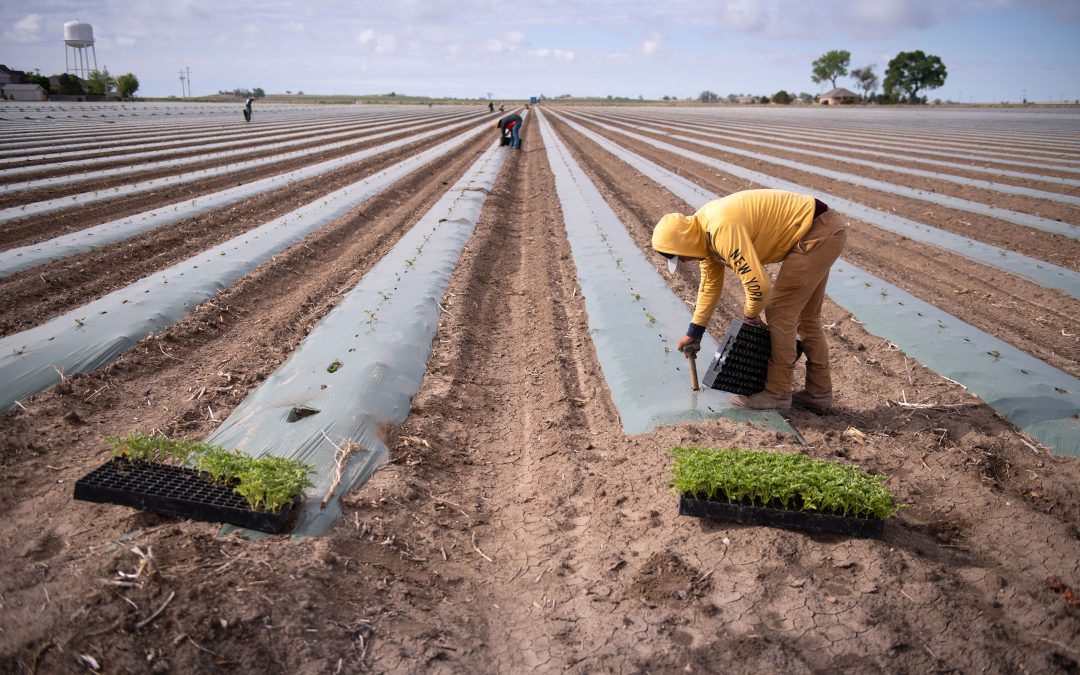A major southern Colorado water district voted unanimously last week to oppose an $80.4 million agricultural water purchase by Aurora in Colorado’s Arkansas River Valley, saying the deal violates a 2003 agreement that prohibits the fast-growing city from taking more water out of the valley.
Aurora would lease the water back to Arkansas Valley farmers in most years, using it periodically in dry periods.
During a special meeting April 9, the Southeastern Colorado Water Conservancy District said it had numerous concerns with the purchase, which is set to close this month. Southeastern manages the federally owned Fryingpan-Arkansas Project, which includes Pueblo Reservoir.
Southeastern declined to say what legal action it might take if the deal goes through.
The project was built in the 1950s to gather water from the Western Slope and the headwaters of the Arkansas River and deliver it to the cities and farms of the Arkansas Valley. Local residents, via property taxes, have repaid the federal government for most of the construction costs and continue to pay the maintenance and operation costs of the massive project, according to Bill Long, president of the Pueblo-based district’s board of directors.
But since 2003, Aurora has been allowed to use the Fry-Ark project to move farm water it purchased out of the valley and up to its reservoir and delivery systems in the metro area. As part of that deal, Aurora agreed to pay $25 million over the term of the 40-year agreement. Just over $11 million has been paid to date, according to Southeastern.
“People don’t realize that when the taxpayers build something for their benefit but it winds up being used by someone who is not part of the project, it is extremely frustrating,” Long said.
Alex Davis, Aurora Water’s assistant general manager for water supply and demand, said the city is optimistic Southeastern’s objections can be overcome.
“We are hoping to work this out. I think we understand their concerns and their fears,” she said. “While we disagree with their interpretation [of the 2003 agreement], we are looking for ways to mitigate” any impacts that might occur.
Aurora has had a controversial role in the history of agricultural water in the Arkansas Valley. In the 1970s and 1980s it purchased water in several counties, drying up the farms the water once irrigated, and moving it up to delivery and storage systems in the metro area.
That practice, known as buy and dry, since then has been widely condemned.
Can a lease-back of water protect farm fields?
Under the terms of this new agreement, Aurora will spend $80.4 million to buy 5,200 acres of land in Otero County and the water used to irrigate 4,806 acres of productive farmland from C&A Companies. The land is currently owned by Phillip Chavez, a Rocky Ford farmer and member of the Colorado State Land Board who is under contract to sell the land and water to C&A, a metro area real estate development company. Chavez declined to comment on Southeastern’s opposition, citing the need for confidentiality prior to the close of the deal.
Aurora’s Davis, and other city officials, say the purchase is structured to protect the agricultural lands because the city would only use the water during dry times, rather than permanently taking it out of the valley.
The urban lease-back provision could be used in three years out of 10, leaving the water on the farms for the remaining seven years.
Under state law, such leases can be done for three consecutive 10-year periods, Davis said.
Still Mike Bartolo, a retired Colorado State University extension agent who lives in the area, says the deal jeopardizes the region’s already fragile, drought-stressed farm economy.
“They’re saying this isn’t going to have much impact,” Bartolo said. “But there is going to be an impact, environmentally and politically.”
What action Southeastern’s board may take if its concerns aren’t adequately addressed isn’t clear yet, but Long said he has agreed to continue discussions.
“We are willing to sit down and have a conversation,” Long said.



 Print
Print